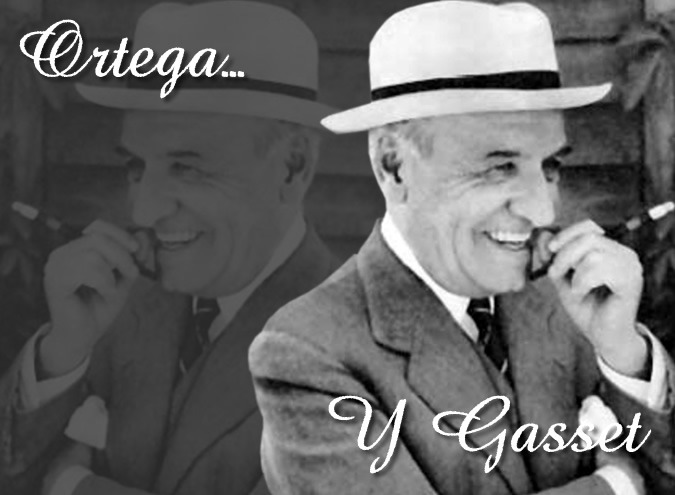In our daily business we are constantly making decisions. And it is even relatively common to replace decisions that contradict previous ones within a short period of time. Or we simply choose not to make them. In a few seconds we can decide whether to drink an orange juice or a papaya smoothie. The common thread of decisions is not easy to understand even for the people who make them. And we should not forget that we always aspire for our decisions to be born and transmitted in a certain way: from a small whisper to the use of signs. Nowadays, most of them transcend the public sphere and are stored on a mobile device. There are few people left in the world whose performances do not transcend.
An oxygen balloon that could perhaps add some calmness to the decision-making process would be to apply Ortega y Gasset's maxim: ".I am me and my circumstances". It should be made clear that Ortega y Gasset was not two persons but one. In the same way, it would be the case with the tandem person and his circumstances, which really form a unit. However, many people still believe that Ortega y Gasset was two persons. Perhaps what this belief denotes is that they are thinking more of their neighbour's circumstances than of their own; or, simply, of the charanga y pandereta, as Antonio Machado would say. In any case, any decision always involves, to a greater or lesser extent, a combination of one's own interests and those of others.
From a legal point of view, we currently have a "hyper-regulation" that inundates our own and other people's circumstances. We have different centres of legal rule-making coming from places as disparate as Strasbourg or Madrid. Legal rules also often stop over in some provincial capitals. The rules that are approved in these places often have the force of law and aim to set the coordinates in which citizens make their decisions. Nor should it be forgotten that our legislation enshrines the principle of freedom of agreement. As a result, two people can make decisions by creating their own legal rules as long as they do not contradict other higher legal rules, such as laws.
In practice, many decisions end up in disputes that are settled in courts and tribunals. The problem arises when, when it comes to settling a dispute, the legal rule has to be applied to the specific case. And although it may seem irreverent what I am going to say now, the legal rule often has a general and abstract vocation that is not usually adapted to the circumstances of the specific case. Certainly, the legal rule applies to facts, that is to say, to a set of circumstances of various kinds. Circumstances can be complicated. And very. And there is nothing more elusive than a clear and obvious circumstance. So, it is in this situation that we can bring up the principle according to which no one can go against his own acts, which is an aspect of genuine good faith.
Good faith is often spoken of in a somewhat imprecise way, but in any legal dispute it is a fundamental parameter. We probably all have our own concept of good faith. I will go in good faith, we tend to think. An endearing manifestation of good faith is that no one can go against his own acts. In other words, a person's actions can be legally binding as long as they are unambiguous. In order to delimit one's own acts, it will be essential to establish in time which was the first relevant legal act and which was the subsequent own act that contradicts it. If we observe that there is a contradiction between the first and the second act, we can conclude that one has acted in bad faith, thereby contravening the maxim that no one can go against his own acts.
This principle or maxim that no one can go against his or her own actions is not only applicable to citizens in decision-making, but also to any public administration. In the administrative sphere, this principle is also known as legitimate expectations and it is very useful to invoke it in the face of arbitrary changes by the public administration.
In order to detect that good faith and the principle that no one can go against their own actions are being violated, it is very useful to refer to a phrase attributed to the Uruguayan writer Mario Benedetti which tells us: "Just when we thought we had all the answers, suddenly all the questions changed.."











Excellent article Jaime and congratulations for this episode in your life!
Interesting and excellent article. Congratulations and success.